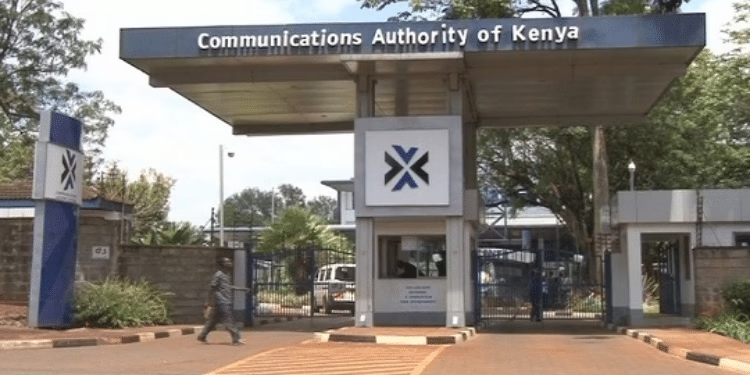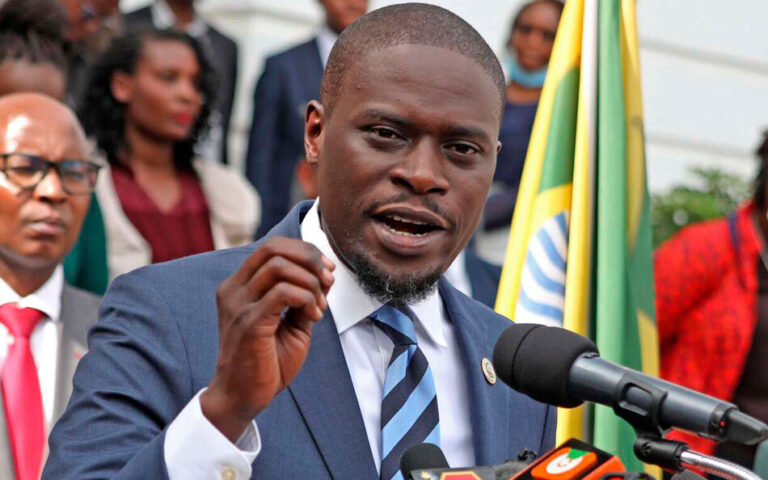
The Communications Authority of Kenya (CA) has sparked a nationwide outcry after ordering all television and radio broadcasters to halt live coverage of Wednesday’s mass demonstrations commemorating the one-year anniversary of the 2024 anti-tax protests. The directive, issued midday, has been widely condemned as an attack on press freedom and a worrying sign of rising media censorship.
In a letter signed by CA Director General David Mugonyi, media outlets were accused of violating provisions of the Constitution and the Kenya Information and Communications Act. The Authority cited Articles 33(2) and 34(1) of the Constitution, along with Section 46I of the Act, warning that “failure to comply shall attract regulatory sanctions.” This move immediately triggered backlash from journalists, civil society groups, and legal experts who accused the CA of overreach and political bias.
The crackdown coincided with large-scale protests in Nairobi, Kisumu, Mombasa, Nakuru, and other cities, where demonstrators marched to honor those killed during last year’s unrest. Key government buildings, including Parliament and State House, were sealed off by security forces, and several roads into the Central Business District were barricaded. By afternoon, confrontations with police had escalated, with reports of injuries and possible gunshot wounds in Nairobi’s Mathare and Kibera neighborhoods.
While major broadcasters such as Citizen TV, NTV, and KTN News complied with the ban and suspended live feeds, many turned to digital platforms like YouTube, TikTok, and X (formerly Twitter) to continue reporting. The directive did not extend to online platforms, giving rise to a surge in grassroots livestreams and citizen journalism.
The Media Council of Kenya also released a statement condemning the broadcast ban and urging the government to respect media independence and journalists’ safety. The Council further urged the CA to rescind the directive and engage stakeholders in constructive dialogue.
Interior Cabinet Secretary Prof. Kithure Kindiki defended the government’s position, stating that the State remains committed to upholding law and order. However, he warned that “firm action” would be taken against incitement or any unlawful assembly.
As the situation evolves, many are closely watching whether legal challenges will be filed against the CA’s directive. Media watchdogs, constitutional lawyers, and political leaders are calling on the courts to step in and reaffirm the media’s constitutional protections. For now, the digital space remains the last bastion for real-time reporting, as Kenya once again grapples with the balance between national security and civil liberties.

